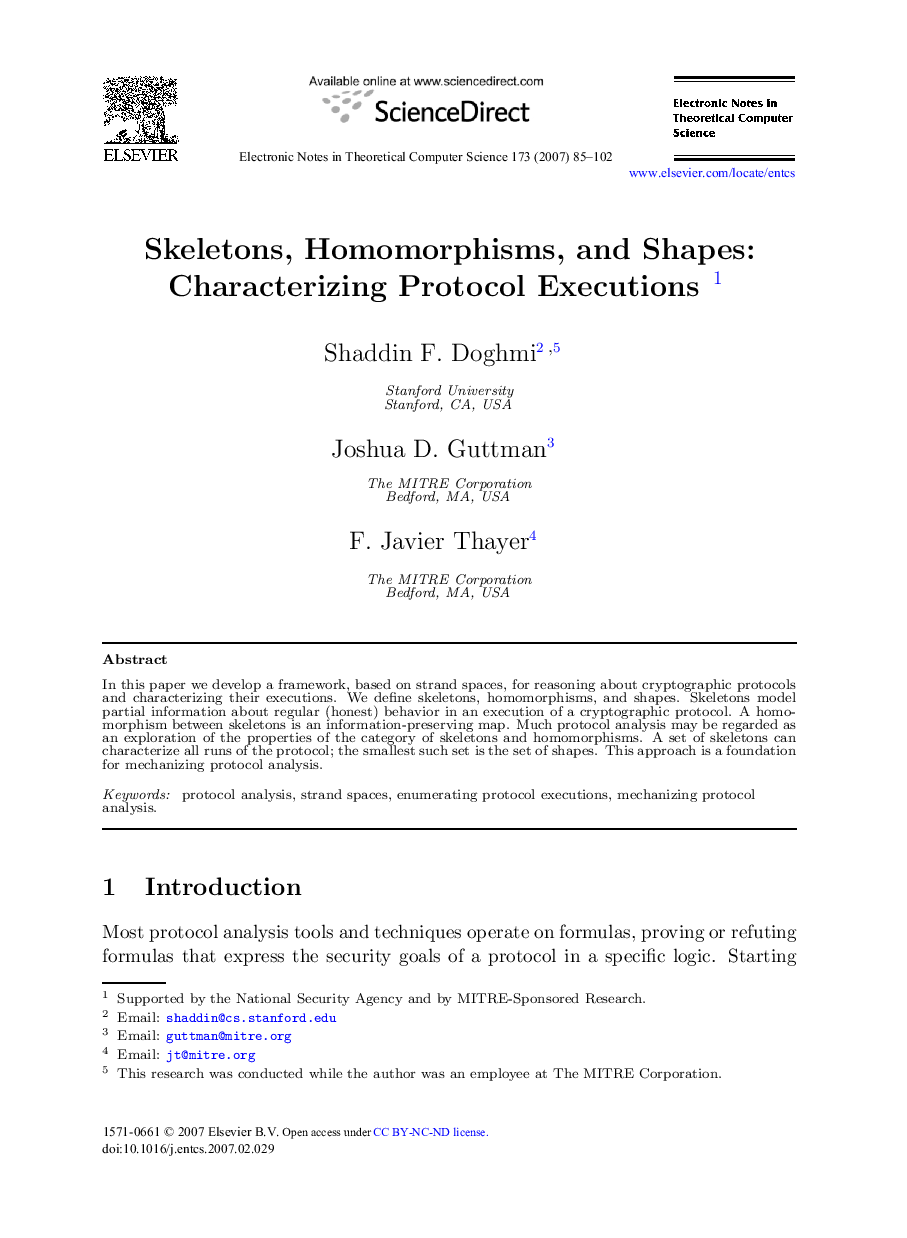| Article ID | Journal | Published Year | Pages | File Type |
|---|---|---|---|---|
| 422488 | Electronic Notes in Theoretical Computer Science | 2007 | 18 Pages |
Abstract
In this paper we develop a framework, based on strand spaces, for reasoning about cryptographic protocols and characterizing their executions. We define skeletons, homomorphisms, and shapes. Skeletons model partial information about regular (honest) behavior in an execution of a cryptographic protocol. A homomorphism between skeletons is an information-preserving map. Much protocol analysis may be regarded as an exploration of the properties of the category of skeletons and homomorphisms. A set of skeletons can characterize all runs of the protocol; the smallest such set is the set of shapes. This approach is a foundation for mechanizing protocol analysis.
Related Topics
Physical Sciences and Engineering
Computer Science
Computational Theory and Mathematics
